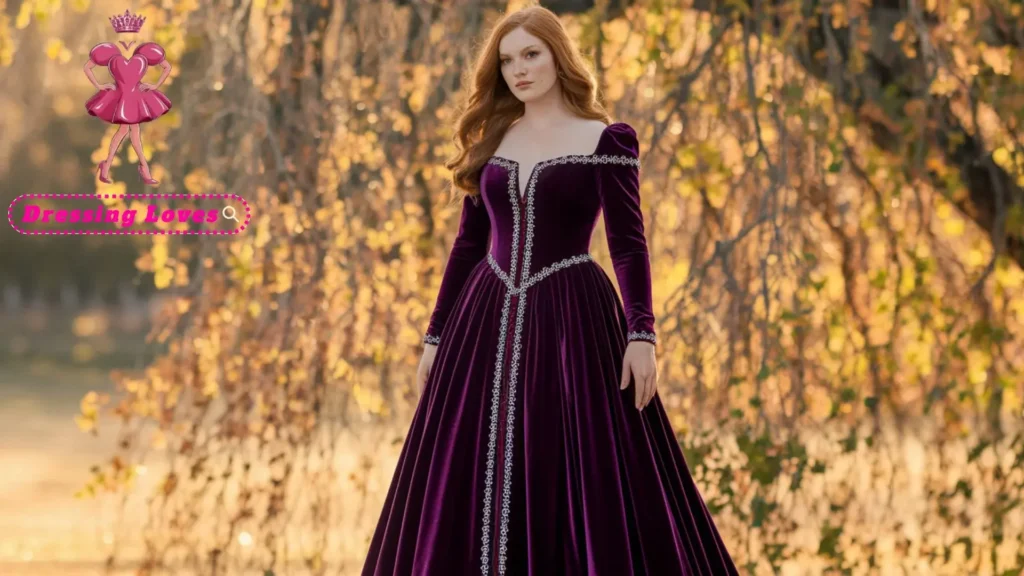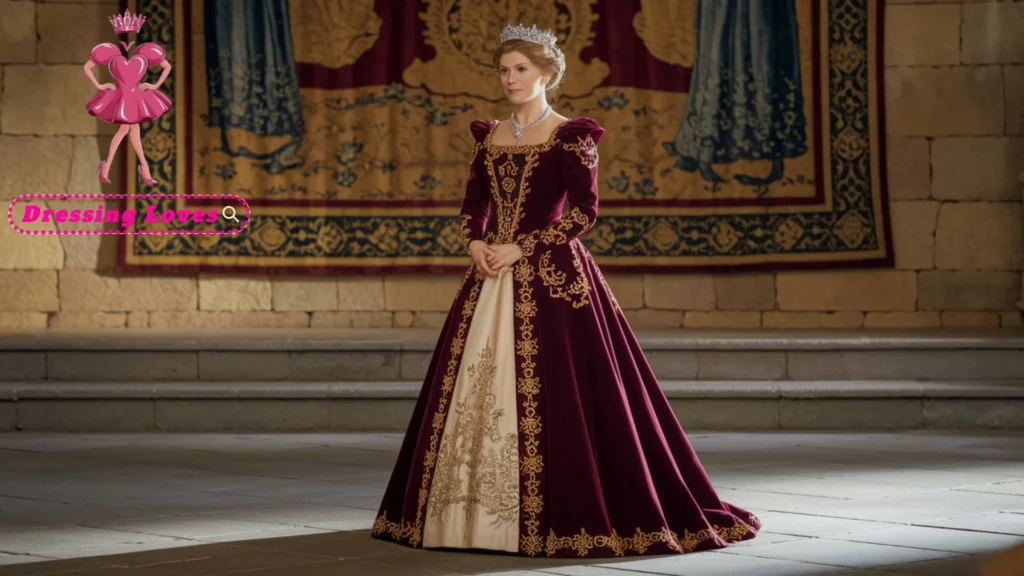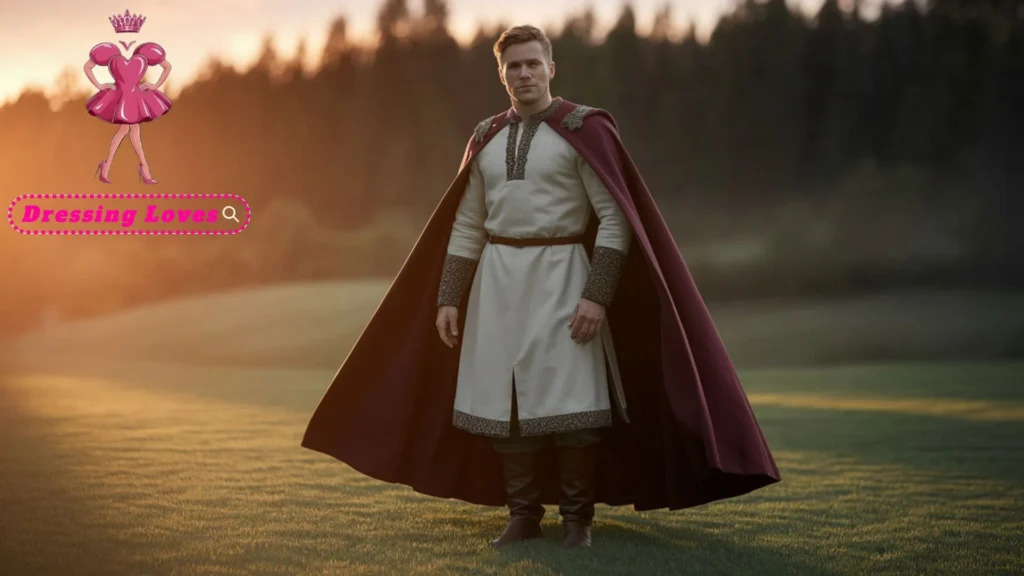Attending a medieval-themed event is always an exciting experience. Whether it’s a Renaissance fair, a costume party, or a grand Renaissance fair, the right medieval dresses can truly transport you to the Middle Ages. As someone who has spent years admiring historical fashion, I understand the importance of finding the perfect outfit that fits the theme and makes you stand out. Every choice tells a unique story, from regal gowns for a noble lady to fierce warrior outfits for a bold knight.
When you select your ensemble, please focus on details that capture the medieval style effortlessly. A flowing, elegant gown with intricate embroidery is ideal for those who want to exude royalty, while warrior outfits featuring armor-like designs are great for those who prefer a bolder look. The best part about dressing up for such occasions is the freedom to create a character that matches your personality. Whether you wish to be a mysterious noble or a fearless fighter, the right costume ideas will make your vision come to life.
Dressing for a medieval-themed event is not just about wearing a costume- it’s about embracing history and storytelling. Every accessory, from belts to cloaks, adds depth to your overall style. Whether attending a grand ball or a thrilling battle reenactment, the right outfit will make you feel as if you’ve stepped straight out of history. So, dive into the world of medieval fashion and let your attire speak volumes at your next event!
Elegant Velvet Gown

A stunning choice for a noble lady, the elegant gown made of velvet is perfect for formal gatherings. This medieval dress often features intricate embroidery, long flowing sleeves, and rich jewel tones, making it a standout piece at any medieval-themed event. Wearing this outfit will instantly transport you to the Middle Ages, embodying grace and sophistication.
Where to Use
- Renaissance Faire
- Costume party
- Theatrical performances
Where Not to Use
- Battle reenactments
- Outdoor festivals with heavy movement
Pros and Cons of an Elegant Velvet Gown
Pros:
- Rich, luxurious fabric enhances authenticity
- Comfortable for all-day wear at events
- Versatile for different costume ideas
Cons:
- Heavy fabric may not be ideal for warm weather
- Requires careful maintenance to preserve elegance
Warrior Princess Outfit
A fusion of femininity and strength, the fierce warrior outfit combines armor-like designs with flowing skirts or tunics. This outfit is perfect for those who want to embrace both beauty and power at medieval-themed events.
Where to Use
- Renaissance fair
- Battle reenactments
- Fantasy-themed gatherings
Where Not to Use
- Formal court settings
- Noble feasts
Pros and Cons of the Warrior Princess Outfit
Pros:
- Strikes a balance between elegance and strength
- Ideal for action-packed medieval activities
- Creates a bold, commanding presence
Cons:
- Can be restrictive due to armor pieces
- Requires extra accessories for full effect
Regal Queen’s Dress

For those wanting to make a grand entrance, the regal gown of a queen is unmatched. Featuring gold embroidery, elaborate draping, and a fitted bodice, this is the perfect outfit for commanding attention.
Where to Use
- Renaissance Faire
- Themed royal banquets
- Costume parties
Where Not to Use
- Battle reenactments
- Outdoor festivals requiring mobility
Pros and Cons of Regal Queen’s Dress
Pros:
- Exudes authority and grandeur
- Intricate details add to the historical accuracy
- Available in a variety of elegant fabrics
Cons:
- It can be expensive due to fabric quality
- Not suitable for physically demanding activities
Peasant Dress with Apron
For a simple yet authentic medieval dress, a peasant-style outfit offers comfort and versatility. Made from lightweight cotton or linen, this dress is ideal for medieval-themed events where ease of movement is essential.
Where to Use
- Renaissance fair
- Casual medieval markets
- Live-action roleplay (LARP) events
Where Not to Use
- Royal-themed banquets
- High-society medieval gatherings
Pros and Cons of Peasant Dress with Apron
Pros:
- Breathable fabric for comfort
- Easy to move in for interactive activities
- Historically accurate for everyday medieval settings
Cons:
- Less glamorous than noble attire
- Limited embellishments compared to elite outfits
Nobleman’s Tunic and Cloak

For men looking to embody medieval style, a nobleman’s tunic paired with a decorative cloak is a classic choice. This ensemble often features embroidery and a belt for added refinement.
Where to Use
- Renaissance Faire
- Medieval-themed parties
- Stage performances
Where Not to Use
- Battle reenactments
- Heavy physical activity events
Pros and Cons of a Nobleman’s Tunic and Cloak
Pros:
- A distinguished and historically accurate choice
- Comfortable for long wear
- Works well with accessories like hats and boots
Cons:
- Can be too formal for casual medieval settings
- Requires proper layering for full effect
Knight’s Armor Set
A timeless choice for those who want to embody bravery, the knight outfit is one of the most recognizable warrior outfits in history. Complete with chainmail, a tunic, and a sword, this outfit is ideal for battle-focused medieval-themed events.
Where to Use
- Battle reenactments
- Theatrical performances
- Medieval jousting events
Where Not to Use
- Casual costume parties
- Royal banquets
Pros and Cons of Knight’s Armor Set
Pros:
- Perfect for action-based medieval experiences
- Creates an impressive and commanding presence
- Offers many customization options
Cons:
- Can be heavy and restrictive
- Requires maintenance for metal pieces
Monk’s Robe
A simple yet effective medieval look, the monk’s robe is an essential part of historical fashion. With a loose fit and a rope belt, it represents humility and devotion.
Where to Use
- Medieval religious reenactments
- LARP events
- Historical festivals
Where Not to Use
- High-status noble events
- Battle-themed gatherings
Pros and Cons of Monk’s Robe
Pros:
- Extremely comfortable and breathable
- Budget-friendly and easy to find
- Works well for group costume themes
Cons:
- Lacks an elaborate design for formal events
- It can appear plain compared to other outfits
Viking-Inspired Outfit
A bold choice for those who love Norse culture, Viking-inspired clothing blends tunics, furs, and leather elements to create a powerful look.
Where to Use
- Renaissance fair
- Fantasy-themed gatherings
- Battle reenactments
Where Not to Use
- Formal medieval court settings
- Traditional noble events
Pros and Cons of Viking-Inspired Outfit
Pros:
- Adds a unique, warrior-like presence
- Comfortable for active participation
- Durable materials enhance authenticity
Cons:
- Can be heavy depending on material choices
- Requires multiple layers for a complete look
Maidservant Dress
A modest yet charming choice, the maidservant dress offers a historical touch while maintaining elegance. Often paired with a simple apron and bonnet, this look is great for portraying medieval working-class women.
Where to Use
- Medieval-themed markets
- Historical education events
- Renaissance fairs
Where Not to Use
- Royal banquets
- High-society gatherings
Pros and Cons of Maidservant Dress
Pros:
- Comfortable and practical
- Historically accurate representation
- Affordable and widely available
Cons:
- Lacks the grandeur of noble attire
- Minimal embellishments
Jester’s Costume
For those who love to entertain, the jester’s outfit is a fun and lively medieval choice. Featuring bright colors, bells, and unique patterns, it’s a costume that brings laughter to any medieval-themed event.
Where to Use
- Renaissance fairs
- Theatrical performances
- Costume parties
Where Not to Use
- Formal noble gatherings
- Serious battle reenactments
Pros and Cons of Jester’s Costume
Pros:
- Perfect for comedic and lively roles
- Stands out in any crowd
- Offers flexibility for movement
Cons:
- Not suitable for serious medieval roles
- Can be considered too playful for some events
Conclusion
Dressing for a medieval-themed event is more than just picking a costume- it’s about embracing history, culture, and personal expression. Whether you choose a stunning regal gown, a bold knight’s armor, or a simple peasant dress, each outfit tells a unique story of the Middle Ages. The variety of costume ideas allows you to create the perfect outfit that suits your personality and event needs, ensuring you stand out and fully immerse yourself in the experience.
When attending a Renaissance fair, costume party, or Renaissance fair, the right attire not only enhances your appearance but also elevates the overall atmosphere of the event. Accessories such as belts, cloaks, and jewelry help refine your medieval style, making it even more authentic. Investing in high-quality fabrics like velvet, brocade, and leather can elevate your look, making it both comfortable and historically accurate. Additionally, considering the event’s setting and purpose will help you decide whether to wear an elegant gown, a fierce warrior outfit, or a practical ensemble like a maidservant dress.
Each outfit has its pros and cons, from mobility to weather suitability. A warrior outfit may be ideal for reenactments, but too restrictive for casual gatherings. Meanwhile, a nobleman’s tunic or a queen’s dress may look grand but require careful handling. Understanding these factors ensures that you make the best decision for your event.
No matter what attire you choose, the key is to wear it with confidence and authenticity. Your choice of medieval dresses is not just about looking good- it’s about stepping into a different era and fully embracing the charm of historical fashion. With the top 10 options we’ve covered, you’re sure to find something that will impress at any gathering.
FAQs
What is the best medieval dress for a Renaissance fair?
The best medieval dress for a Renaissance fair depends on your role. If you want a regal look, opt for an elegant gown or a nobleman’s tunic. For a more adventurous feel, a warrior outfit or a knight’s armor works well. If comfort is your priority, a peasant dress or a maidservant dress offers a simple yet historical look. Choose an outfit that matches your personality and the event’s atmosphere.
Can I wear modern accessories with a medieval outfit?
While modern accessories may be tempting, they can take away from the authenticity of your medieval style. Instead, opt for historically inspired accessories like leather belts, metal brooches, or embroidered cloaks. Footwear is also important, sneakers, and go for leather boots or simple medieval-style shoes. Adding these details ensures that your medieval dress feels complete and period-accurate.
What fabrics should I choose for a historically accurate medieval dress?
For a historically accurate medieval dress, opt for fabrics like velvet, brocade, wool, and linen. These materials were commonly used in the Middle Ages and provide a rich, authentic look. Avoid synthetic fabrics like polyester, as they don’t capture the natural texture and drape of medieval clothing. High-quality materials not only enhance your style but also improve comfort and durability.
How do I make my medieval costume look more authentic?
To make your medieval dress look authentic, focus on layering, fabric choice, and accessories. A simple tunic can be enhanced with a cloak, a belt, and historically inspired jewelry. Avoid visible zippers, plastic materials, and modern stitching patterns. Hairstyles also play a role – braids, headpieces, or veils can add to the authenticity of a noblewoman’s elegant gown, while a warrior outfit benefits from rugged, natural styling.
Are medieval dresses comfortable to wear for long hours?
The comfort of a medieval dress depends on the fabric and design. Peasant dresses, monk robes, and maidservant dresses are lightweight and easy to wear. However, warrior outfits, knights’ armor, and regal gowns can be heavier and require adjustment. Choosing breathable fabrics and ensuring a good fit will help you stay comfortable while enjoying your medieval-themed event.